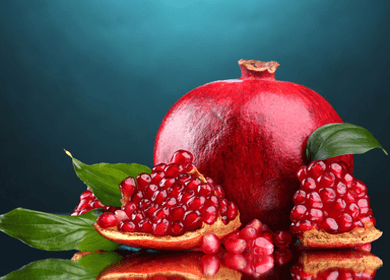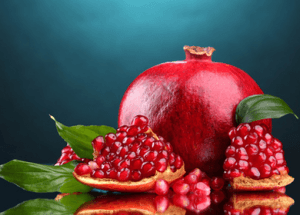
Although fewer foods are in season during the winter than in summer, winter boasts some surprising health superstars. Here are 4 of the healthiest winter foods you should be eating:
1. POMEGRANATES

Chances are you’ve tasted pomegranates in their newly popular juice form. And from a heart-health perspective, that’s probably a good thing. Pomegranate juice is rich in antioxidants (more so than other fruit juices)–just a cup daily might help to keep free radicals from oxidizing “bad” LDL cholesterol, according to a preliminary study in the American Journal of Clinical Nutrition. Oxidized LDL contributes to plaque buildup in the arteries.
Another study showed that drinking pomegranate juice might improve blood flow to the heart in people with myocardial ischemia, a serious condition in which the heart’s oxygen supply is compromised because the arteries leading to it are blocked.
2. DARK LEAFY GREENS
Dark leafy greens, such as kale, chard and collards, thrive in the chill of winter when the rest of the produce section looks bleak. In fact, a frost can take away the bitterness of kale. These greens are particularly rich in vitamins A, C and K. Collards, mustard greens and escarole are also excellent sources of folate, important for women of childbearing age.
3. CITRUS
Citrus fruits, including lemons, limes, oranges and grapefruit, are at their juiciest in the wintertime and can add sunshine to the dreary winter. Citrus fruits are loaded with vitamin C–one medium orange delivers more than 100 percent of your daily dose. Citrus fruits are also rich sources of flavonoids. The predominant flavonoid in these fruits–hesperidin–is credited with boosting “good” HDL cholesterol and lowering “bad” LDL cholesterol and triglycerides.
4. WINTER SQUASH
There are many varieties of winter squash–including butternut, acorn, delicata and spaghetti squash–and they’re all excellent choices in the winter. One cup of cooked winter squash has few calories (around 80) but is high in both vitamin A (214 percent of the recommended daily value) and vitamin C (33 percent), as well as being a good source of vitamins B6 and K, potassium and folate.
– Kerri-Ann Jennings, M.S., R.D.
EatingWell is a magazine and website devoted to healthy eating as a way of life. Online at www.eatingwell.com.
(c) 2012 Eating Well, Inc. DISTRIBUTED BY TRIBUNE MEDIA SERVICES, INC.

